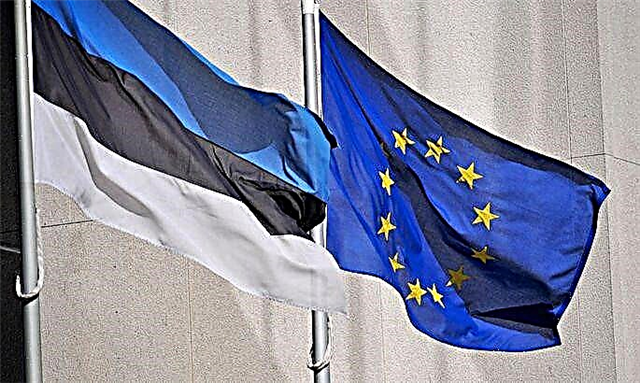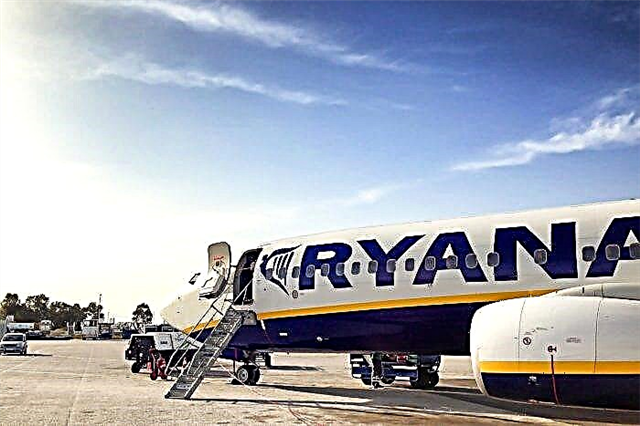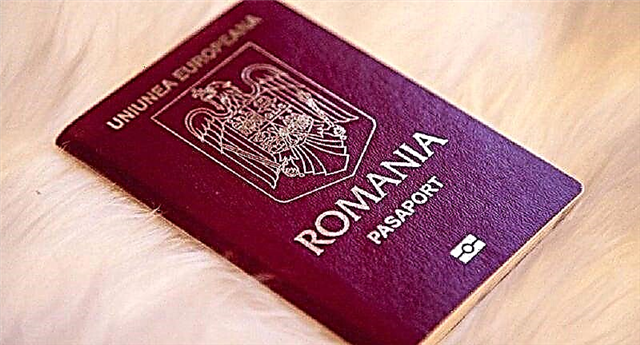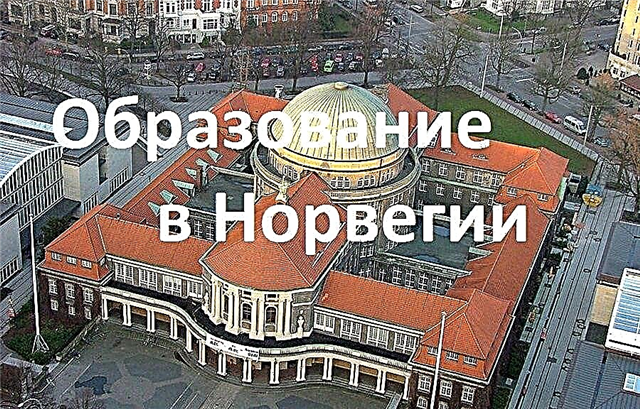For residents of the CIS countries, education in Norway is an opportunity to obtain a European-style diploma in one of the most developed countries in the world. Norway is consistently among the top ten countries with the highest GDP per capita, and in terms of the human development index (including the degree of education) it is in the lead in the world.
Features of higher education in Norway
The education system in Norway includes the following levels:
- Preschool (from 1 to 6 years old).
- School: primary and secondary (6-16 years old), high school (16-19 years old).
- Higher education.

The advantages of studying in this country are:
- Norway's participation in the Schengen Agreement, which allows students to travel actively throughout Europe;
- Education at the expense of the budget of the absolute majority of students, incl. citizens of foreign states;
- Integration into the Bologna higher education system;
- Education in Norwegian or English;
- Lack of entrance examinations in the vast majority of universities;
- Practical orientation of training.
There are about 50 higher education institutions of various types in Norway. The share of foreigners in them is about 10%... Most of the students come from neighboring Sweden, followed by students from Russia in second place.
The leading universities in Norway are regularly included in independent rankings of the most prestigious educational institutions in the world: Times Higher Education and QS.
Since secondary education in this country lasts 13 years, in order to enter a Norwegian university, an applicant from Russia, Ukraine or Belarus, as a rule, needs to complete the 1st year of the university or several college courses in their country.
Reference! An important feature of the educational system in Norway is the possibility of admission to the undergraduate program according to the 23/5 system, i.e. at the age of 23 with 5 years of professional experience.
The duration of training varies depending on the chosen specialty and averages 3.5-4 years.
Longer study at faculties of such directions as:
- Medical;
- Creative;
- Musical.
You May Also Like
The academic year begins in mid-August and lasts until the end of June. Sessions are traditionally held in December and June. The form of examinations (oral or written) is chosen by the teacher. In case of failure, 3 retakes are allowed. At the end of the training, each student writes an original scientific work and takes an exam in philosophy, regardless of the specialty.
As in other countries of the Bologna Process, in order to be admitted to the next semester, a student must collect 30 credits according to the system ECTS... 1 credit equals 1 week of study in a specific subject.

The knowledge assessment system is alphabetic, six-point: from A to F:
- A - the highest score;
- E - minimum checkpoint;
- F - unsatisfactory.
Education programs
The higher education system in Norway includes:
- Universities: characterized by a large number of academic disciplines in various fields. They are research bases.
- Specialized universities: teaching is carried out in a specific profile (economics, veterinary medicine, music).
- University colleges: a diploma certifies a higher professional education within the framework of a bachelor's degree and gives the right to enroll in a master's degree.
- Private institutions of higher education: they do not fundamentally differ from other universities, except for the form of ownership.
Norway's participation in the Bologna system implies the same procedure for obtaining higher education with other states. It consists of 2 levels: bachelor's and master's degrees. Postgraduate education - doctoral studies is sometimes considered as a 3 step.
The duration of studies in a bachelor's degree is 3.5-4 years. When you receive a specialty in the humanities, study lasts 6 months longer than at the faculties of natural sciences.
A prerequisite for obtaining a bachelor's degree is the successful passing of exams and a set of 180 credit points in the system ECTS... The Master's degree is a logical continuation of the Bachelor's degree.
Some specialties that require longer studies go beyond the 2-level education system:
- Medical and engineering professions;
- Economy;
- Jurisprudence.
To obtain a diploma in these areas, you will have to study up to 6 years or more.
You May Also Like

Conditions for admission
To enter a Norwegian university, a student from the Russian Federation, as a rule, must not only complete 11 classes of a general education school, but also 1 year of a university, institute or college at home. It is possible to enter a college after grade 11 in Norway itself.
At the 1st stage of education, universities hold a certificate competition. Some faculties (medical, creative) may have exams.
Since most undergraduate programs are taught in Norwegian, knowledge of the language is mandatory. For this, there are a large number of free municipal courses in the country. Every year, some universities recruit students for English-language studies. In this case, a certificate is required IELTS (at least 5.5-6 points) or TOEFL (60 points for iBT, 500 for PBT).
The list of master's specialties that are available in English is much wider.
As a rule, there are no master's exams. The selection criterion for students is the average score of the diploma (especially specialized subjects) according to the system Grade Point Average... It can be improved upon condition of work experience in the specialty or availability of scientific publications.
List of required documents
The list of documents is regulated GSU-list and differs depending on the citizenship of the applicant.
For Russians, Kazakhstanis and residents of other CIS countries, it includes:
- School certificate of secondary education, certificate of completion of at least 1 course of a local university with grades.
- A document confirming proficiency in English or Norwegian, depending on the language of the planned study.
- Copy of the passport.
- Photos.
- Motivation letter.
When applying for a magistracy, you must add to the above list:
- Bachelor's diploma on the availability of higher education in the chosen specialty.
- Recommendations from the employer.
- Summary.
Attention! Each university has its own requirements for the necessary documents. They must be submitted in November-February, no later than six months before the start of study.
After entering the university at the embassy, you need to issue a study visa or residence permit. This will require confirmation of financial solvency (not less than 12000 €) and the availability of housing in Norway.
Cost of education
Public universities in Norway provide education at the expense of the budget, regardless of the student's citizenship. The student only needs to pay the fees for each semester: from 30 to 70 €... The average cost of a full undergraduate course in a private university reaches 15000 €, and master's programs - about 10,000 €.
Internship and exchange studies
The Norwegian Center for International Cooperation in Higher Education offers a wide variety of programs for international students, incl. Russian universities. These include Norwegian-Russian Scholarship, north2north, Barentsplus etc. The advantage of such training is that its participants do not provide financial guarantees.
The duration of such internships ranges from one month to several semesters.
Accommodation and meals for students
Norway is one of the most expensive countries in Europe. Since universities do not provide a dormitory for their students, most of them rent real estate. The monthly fee for a 1-room apartment in a residential area of Oslo is about 1000 €, in Tromsø - from 700 €. An exception is made by participants in exchange programs, who are often allocated a place in a hostel.
Students also cover the cost of food on their own, this article of residence accounts for 500-700 € per month.
In addition to free education, the budget of Norway in some cases compensates for the costs of accommodation and meals. This is possible if you win a grant or have excellent academic success. International students can also apply for a loan from the State Education Fund.

Top universities in the country
The top three universities in the country include:
- University of Oslo (Universitetet i Oslo). The largest university in the country with more than 200 years of history. In different years, 5 Nobel laureates were its graduates. It is consistently ranked among the best universities in Europe and the world. The number of students in 8 faculties (from dental to theological) reaches 30 thousand. The leading areas are medicine, law and social sciences. An important feature is that undergraduate studies are taught exclusively in Norwegian.
- University of Tromsø - The Arctic University of Norway (Universitetet i Tromsø - Norges arktiske universitet). 2.5 thousand teachers teach 10 thousand students in 7 faculties. Particular attention is paid to rare areas of human knowledge: space, polar ecology, anthropology, telemedicine. A separate faculty is the Higher School of Fisheries.
- Norwegian University of Life Sciences and Engineering (Norges teknisk-naturvitenskapelige universitet). The second largest and leading technical university in the country is located in Trondheim. The university has 40 thousand students, 10% of which foreigners. Consists of 56 departments, united in 9 faculties (engineering, architecture and design, information technology and electrical engineering, etc.).
Reviews
Olga: There are several compulsory subjects in each semester, the rest can be chosen independently. The semester is divided into weeks that are devoted to a specific subject. Separately, 2 weeks are given for self-preparation.
Michael: I managed to combine study with part-time work: in Norway, official employment of students is allowed up to 20 hours a week. In its spare time, the university offers a large number of practical skills development opportunities on its campuses.
Anastasia: Although education is free, the cost of living in Norway is very high. Only for food, travel and other daily expenses, you need at least 450 € per month.
A Norwegian higher education diploma attracts applicants with its prestige, the possibility of free education and life in one of the richest countries in the world.











